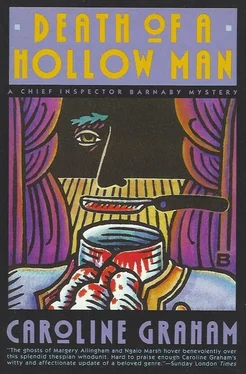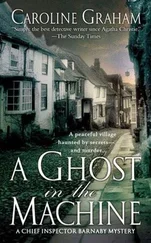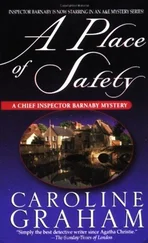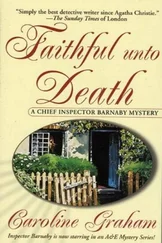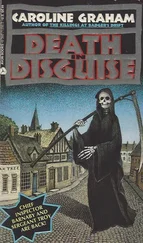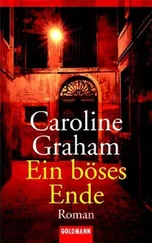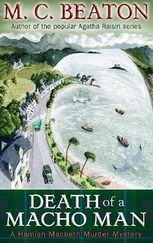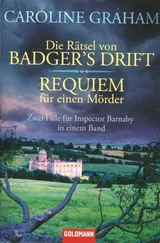Obediently Kitty crossed to the four-poster and stood by his side. Esslyn made a “going up” gesture with his hand, palm held flat, and his wife lifted her nightdress over her head and let it fall, a cool raspberry ripple of satin, into a pool around her feet. Esslyn let his gaze slide over her lean, almost boyish flanks and hips, and small, appley breasts, and his lips tightened with satisfaction. (Rosa had allowed herself to become quite grotesquely fat during the last years of their marriage.) Esslyn tugged at the cord of his pajamas with one hand while patting his wife’s pillow with the other.
“Come along, kitten.”
She felt really nice. Firm and young and strong. She smelled of honeysuckle and the iffy white wine they sold in the clubhouse. She was sweetly compliant rather than saucily active, which, it seemed to Esslyn, was just how things should be. And to round off her character to perfection, she couldn’t act for beans.
This last reflection recalled the rehearsals for Amadeus, and as Esslyn started to move briskly inside his wife, he mulled over his latest role at the Latimer. Quite a challenge (Salieri was never offstage), but he was starting to feel that acting was no longer quite enough. It had been suggested that he might try a spot of directing, and the truth was that Esslyn was rather drawn to this idea. He had once read a biography of Henry Irving, and quite fancied himself in a long dark coat with an astrakhan collar and a tallish hat. He might even grow sideburns—
“How was that for you, darling?”
“How was what? Oh—” He gazed down at Kitty’s face, her lips shinily parted, her eyes closed in soft eclipse. “Sorry. Miles away as per usual. Fine … fine.” He gave her a postcoital peck on the cheek in the manner of one putting the finishing touch to an iced cake and rolled over to his own side of the bed. “Do try and get your lines down for Tuesday, Kitty. At least for the scenes when we’re together. I can’t stand being held up.” Unconsciously he echoed Harold. “I don’t know what you find to do all day.”
“Why”—Kitty got up on one elbow and beamed a shining, blue glance in his direction—“I think of my petti-poos, of course.”
“And I think of you too, puss-wuss,” rejoined Esslyn, really believing at that moment that he did. Then he said, “Don’t forget—by Tuesday,” plumped up his pillows, and, two minutes later, was fast asleep.
The Everards, toadies to the company’s leading man, lived in unspeakable disarray in the crumbling terraced house down by the railway lines.
They were objects of curiosity to the rest of the street, who could not make them out. They did not seem to have jobs (the curtains were still sometimes drawn at midday), and would often not come flitting out with their expandable string shopping bags until well past teatime.
That they had little money seemed obvious. They never gave at the door and could occasionally be seen at five o’clock on market day scavenging behind the stalls with dainty precision, picking over the thrown-out fruits and vegetables. Various subtle and not-so-subtle attempts by the neighbors to get into the house had failed. They had not even managed to set foot on the tacky linoleum in the hall. And the windows were so thickly coated with grime that even when the tattered curtains were pulled aside, the mildewed interior of the house remained a mystery.
The sour patch of ground that passed for a back garden was overgrown with nettles and thistles and tall grass that occasionally swayed and rustled, disturbed by the passing of rodents. On the asphalt beneath the front bay window, their car slumped. This was a fifteen-year-old Volkswagen held together by spot welding and willpower, with a Guinness label where the tax disc should have been. Mrs. Griggs at the corner newsagent’s had reported them to the police over this, and the label had disappeared for a while but was now back again. The Everards, Mrs. Griggs was fond of saying, gave her the creeps. She couldn’t stand Clive’s front teeth, which looked very sharp and protruded slightly, or Donald’s blinking and squinting. She called them Ratty and Moley, although never in their presence.
They were rarely seen apart, and if they were, a certain dimness about the single Everard was noticeable. It was as if only by close physical proximity could the spark be struck that enabled them to shine with their full malevolent wattage. They seemed to feed off each other; wax fat on spiteful prediction and exchange. Nothing gave the brothers more happiness than the intense discomfiture of their fellow men, although they would never have been honest enough to say so. For hypocrisy was their middle name. Nobody could have been more surprised than they when someone took a remark amiss. Or when a plot or a plan resulted in the collapse of frail parties and distress all around. Who would have thought it? they would cry, and would retire to their appalling kitchen to plot and plan some more.
Passers by number 13 Axon Street would stare at the gray windows and mutter and raise their eyebrows. Or tap their foreheads. The question “What are they up to?” was not infrequently posed. Answers ranged pleasurably over a wide spectrum of subversive activities, from the stealthy printing of underground literature to the making of bombs for the IRA. They were all quite wide of the mark. The beam of the Everards’ malice, though powerful, was a narrow one, and if they could make just a little mayhem within the immediate circle of their acquaintances, they were quite content.
The theater was perfectly situated in the very center of Causton, at the corner of the main thoroughfare. Actually it turned the corner, having originally been the last shop (a baker’s) on the High Street and the first, (haberdashery and sewing-machine repairs) on Carradine Road. Both shops went back a long way (the bread had been baked on the premises), and they each had several poky rooms above. Having the strong support of the then-mayor Latimer, the Causton Amateur Dramatic Society leased the two buildings and, with the aid of a grant from the council, the proceeds from various fund-raising activities, and a modest amount of professional help had gutted them both and transformed the shell.
They had built a stage with a plain proscenium arch, fitted a hundred dark gray plastic seats to a raked floor, and installed a simple lighting grid. There was a stage door and two large plate-glass doors that fronted the tiny foyer. This doubled as an office and had in it a desk, a chair, a telephone, an old filing cabinet, and a pay phone. There was also a board showing colorful photographs of the current production. A huge cellar running between both shops became the scene dock and dressing rooms. These were more than adequate except at Panto time or during the run of a play with an exceptionally large cast, such as Amadeus. Toilets for the actors were halfway along a corridor connecting the wings to the foyer.
Three quarters of the top floor was taken up by the club-room, which was open to the public at performance times, when coffee and glasses of wine were available. Plastic tables and chairs were scattered about, and there were a couple of settees, which, imperfectly disguised, performed onstage as often as some of the actors and, it must be said, frequently with more conviction. The rest of the upstairs space was taken up by two rest rooms for the audience and Tim’s lighting box, which had a notice on the door: private, keep out. The Latimer was carpeted throughout in charcoal haircord, and the walls were roughcast white.
Many of the CADS now looked back wistfully to those early days fifteen years past when, surrounded by rubble and timber and cables, and choking on brick dust, they had wrought out of chaos their very own theater. Things had been different then. Harold, for example. Beardless and slim in old corduroys, he had mucked in, getting filthy in the process, cheering them on when they were tired, holding the dream before their flagging spirits and their gritty, dust-filled eyes.
Читать дальше
